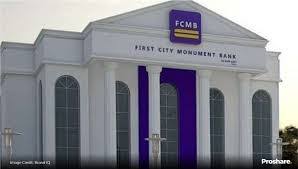‘Why banks must maintain human element amid surge in digital solution’

By Tunde Shorunke
Despite surge in alternative use of the digital solution in commercial banking operations, but a need for the trusted side of advising on wealth physically, would make financial institutions keep maintaining the human element.
In a document made available to The Daily Times, titled: “The Evolving Model of Wealth Management”, the Regional Head of Wealth Management, Europe, Middle East and Africa, Standard Chartered Bank, Dr Owen Young said there has been a significant increase in digital transactions since the emergence of COVID-19 in Africa countries.
He explained that this development has shown the importance and growth of digital banking, but with change comes caution and fear so it still remains key for banks to maintain the human, trusted side of advising on wealth.
However, worried whether financial institutions will remain committed to the new models which have evolved during the pandemic crisis.
He said that it would be a strong, yet fair claim to make, that banks have had to change their business models more than any other industry.
Although, noted that Standard Chartered Bank is not just capable but has also shown the willingness to adapt to new business realities.
According to him, new technology and capabilities which have been accelerated through the COVID-19 pandemic have further disrupted banking including the hitherto slowmoving wealth management business.
“Through our Standard Chartered Mobile App, we saw a 250 per cent increase in wealth management transactions booked between March and April, when COVID-19 hit the African markets.
Whilst Digital Transactions have increased during COVID-19 for Mobile Motor and Home Insurance”, he explained.
Speaking on the need for ‘double down’ requirement on a technology solution, Young said, “The Covid-19 pandemic has required changes in behaviour from both clients and their advisors and placed greater emphasis on digital solutions enabling remote engagement rather than face to face interactions.
“No longer can digital projects be postponed, because the client expects tailor-made services suited to their individual needs whether its easily accessible financial management platforms or face-to-face meetings.
The adoption rate for digital wealth management solutions have increased dramatically during the pandemic. Standard Chartered launched a mobile fixed income platform in selected African markets at the beginning of 2020.
“However, customers still care for an experienced professional who will translate and explain the strategies proposed by the systems, while offering support in the decision-making process.
The classic, relationship-driven business model with its communication channels such as telephone, email, and face-to-face meetings will not become obsolete, but there will be a shift from personal interaction to digitally-enabled client interactions via intelligent solutions and social media.”
READ ALSO: ‘How banks recovered N50.32 million loans from defaulters within 9 days’
Also, Young further pointed out the need for adoption of a new business model of operation in wealth management.
“Based on current trends, over the next few years, the wealth management provider model will expand and refocus, with divides between people and machines fading.
As client needs shift, services and interactions will evolve in multiple ways. For years, wealth management advice meant a client paired with a dedicated human advisor”, he said









